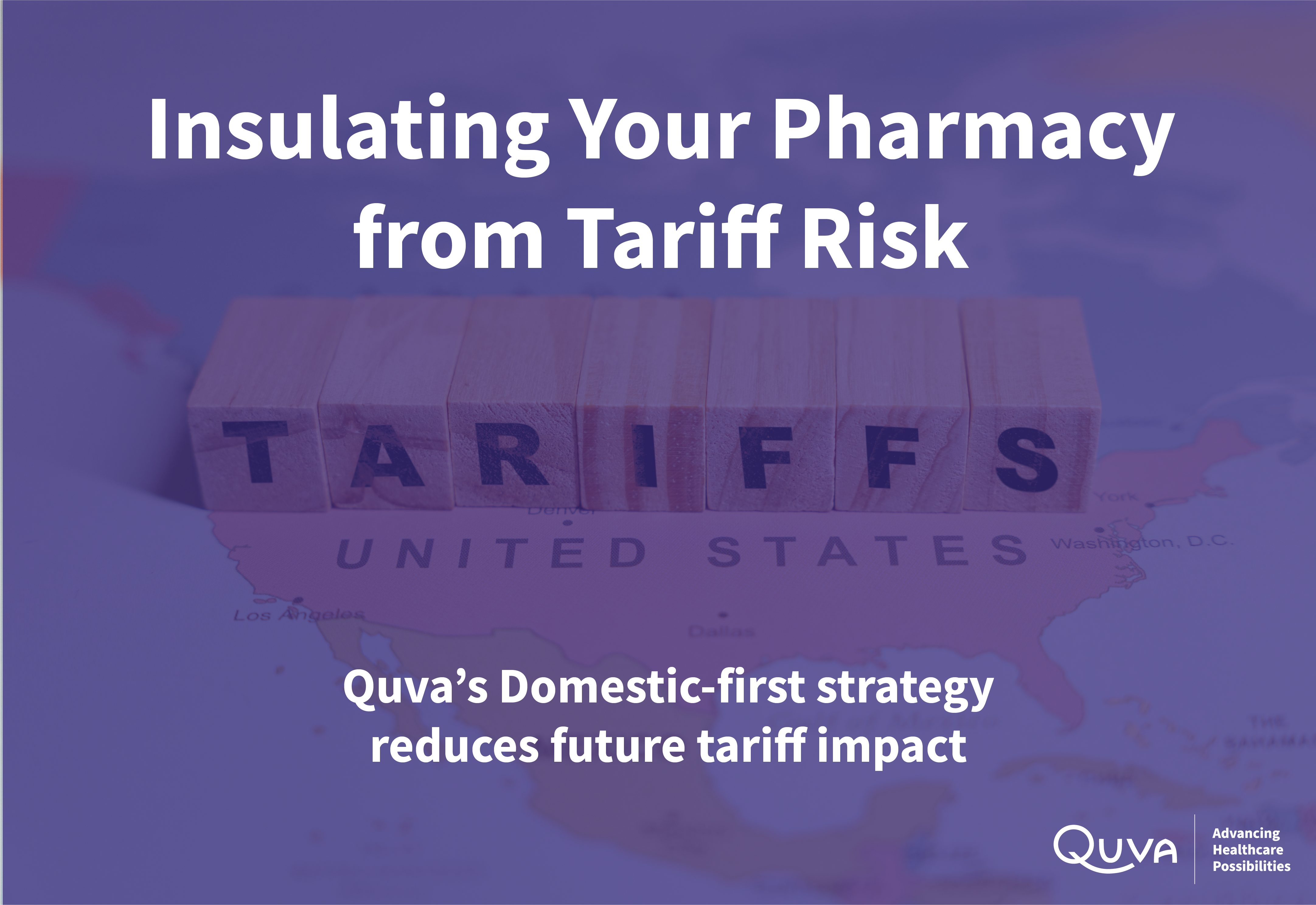
The Administration has recently highlighted reshoring pharmaceutical manufacturing and signaled that tariffs on imported medicines could be used as a future policy tool. While finished pharmaceuticals and most APIs are currently exempt from baseline tariff actions, the discussion keeps tariffs as a live risk for the sector.
Quva’s focus is to shield customers from that volatility while staying transparent about what’s proposed.
Tariff detail by country: Is there impact to finished drug product or API?
- All countries Baseline (“reciprocal”) tariff: 0%, Exempt finished drug product and API’s.
- China: 0%, exclusions extended through Aug 31, 2025.
- India: 0%, the additional 25% tariff the U.S. ordered does not apply to goods listed in the EO’s Annex II, which includes pharmaceuticals.
- EU / UK / Switzerland: 0%, exempt under reciprocal framework
- Canada / Mexico (USMCA):
- 0% for USMCA-origin pharmaceuticals/APIs
- 35% Canada / 25% Mexico - Non-USMCA-origin from CA/MX, subject to border IEEPA rates
Quva’s Domestic-First Advantage
Quva has intentionally built a domestic-first sourcing strategy to help reduce exposure risk for hospitals and pharmacies. Today, over 76% of our total supply chain spend is with U.S.-based suppliers, minimizing vulnerability to tariff impact and global trade disruption. While there may be indirect exposure through upstream suppliers, our sourcing model limits the risk of direct tariff consequences.
This strategy reflects our commitment to ensuring your pharmacy has access to the medicines it needs—regardless of shifts in global trade policy.

Let’s Talk
We welcome the opportunity to discuss how Quva’s approach can support your pharmacy’s procurement strategy for 2025 and beyond. Click to Contact us and connect with our team.

